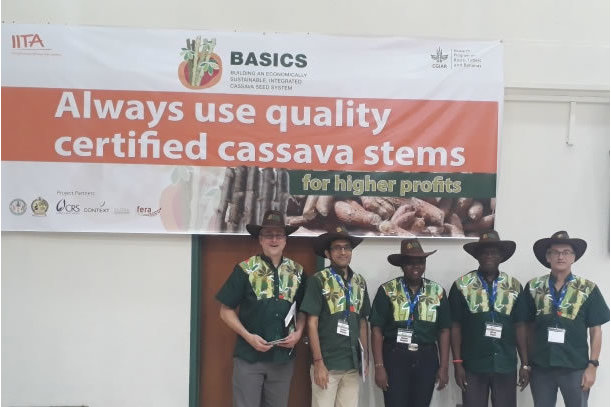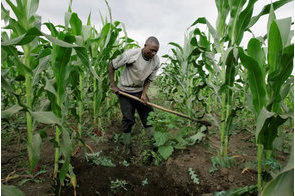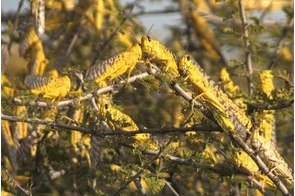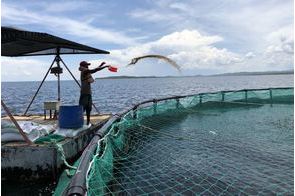Bill & Melinda Gates Foundation supports high quality cassava seeds business in Nigeria

Summary
Researchers say the adoption of high-quality cassava stems for cultivation could raise productivity by at least 30%.
Researchers at a conference on cassava seed system held in Ibadan, Oyo State, said that the adoption and use of improved varieties and high-quality cassava stems for cultivation could help African farmers raise their productivity by at least 30 per cent. The conference, which held last week at the Institute of Tropical Agriculture (IITA), was organized by the Building an Economically Sustainable Integrated Cassava Seed System (BASICS), a Bill & Melinda Gates Foundation-funded project that is addressing the constraints faced by cassava farmers in accessing improved cassava stems (seeds).
Nigeria is the largest producer of cassava in the world, producing about 54 million tonnes annually. However, the average yield of cassava crop per hectare is about 8 tonnes, less than half of the realizable yields of more than 25 tonnes per hectare. Hemant Nitturkar, Project Director for BASICS, said Nigeria could raise the yield of cassava by ensuring that farmers in the country have access to clean cassava seeds. This will mean more revenue from the same land, inputs and effort, and increased productivity across the value chain.
According to a statement released on Wednesday by IITA, the conference brought together national and international researchers, academics, policymakers, the private sector, non-governmental organizations and farmers to discuss the BASICS project plan for 2017 and beyond.
“We have to start with the right planting material and nurture it with good agronomy and weed management practices,” said Nitturkar. “Each of these three components has the potential to raise the productivity of cassava by 30 percent. If we do not improve our practices in seed, weed and agronomy, we are incurring a lost opportunity of about 200 billion Naira annually from each of the three issues.”
BASICS is piloting two models of seed delivery. One is called Village Seed Entrepreneur (VSE) model. This is being implemented in partnership with Catholic Relief Services (CRS) in Benue State and National Roots Crop Research Institute (NRCRI), in Abia, Imo, Cross Rivers and Akwa Ibom states. With this model, BASICS is helping develop a network of 130 community-based seed enterprises. The VSEs will source certified stems of improved varieties of cassava from NRCRI and IITA to multiply and sell to the farmers in their communities.
The second model is called Processor Led Model (PLM). This is implemented in partnership with Context Global Development. Under this model, BASICS is working with large processors of cassava who will then make available quality stems to their outgrowers with a buyback arrangement for the roots produced.
The BASICS project is addressing the constraints of accessing improved cassava seeds by using a new technology, called Semi-Autotrophic Hydroponics (SAH), a tissue culture-based rapid seed multiplication system. Once this technology from Argentina is adopted and perfected in Nigeria by the project, it is expected to have a significant impact on the ability of early generation seed businesses to quickly bring suitable varieties within reach of farmers. BASICS is also working with National Agricultural Seed Council (NASC) and Fera of UK to improve the quality certification system in Nigeria.
Lawrence Kent, a senior programme officer at the Bill & Melinda Gates Foundation, said the aim of BASICS is to build an economically sustainable seed system that is profitable both to the sellers of quality stems and to the farmers who purchase and plant those stems. He encouraged all to continuously link technology developers with farmers through business oriented approaches, like the one being implemented under BASICS.
Related
-
IFAD projects improve food security among rural poor in Nigeria
Notable achievements were recorded with regard to access to finance, community capacity-building and job creation.
-
Current locust outbreak underscores need for pest control preparedness in Africa
Based on my experience developing a plant-based biopesticide for the control of weevils that attack cowpea, maize and rice ...
-
Finnfund invests $6 million to expand aquaculture in Zambia
Finnfund made the investment in an integrated tilapia aquaculture company, producing 12,000 tonnes of tilapia annually.










